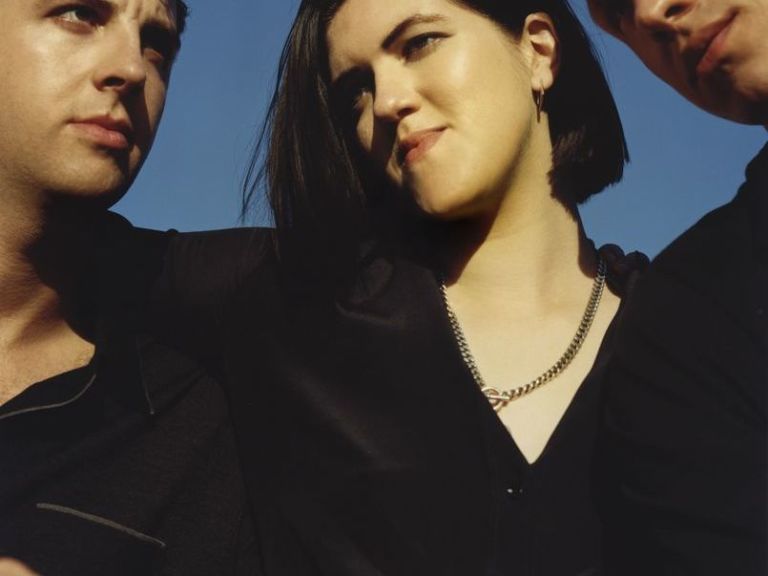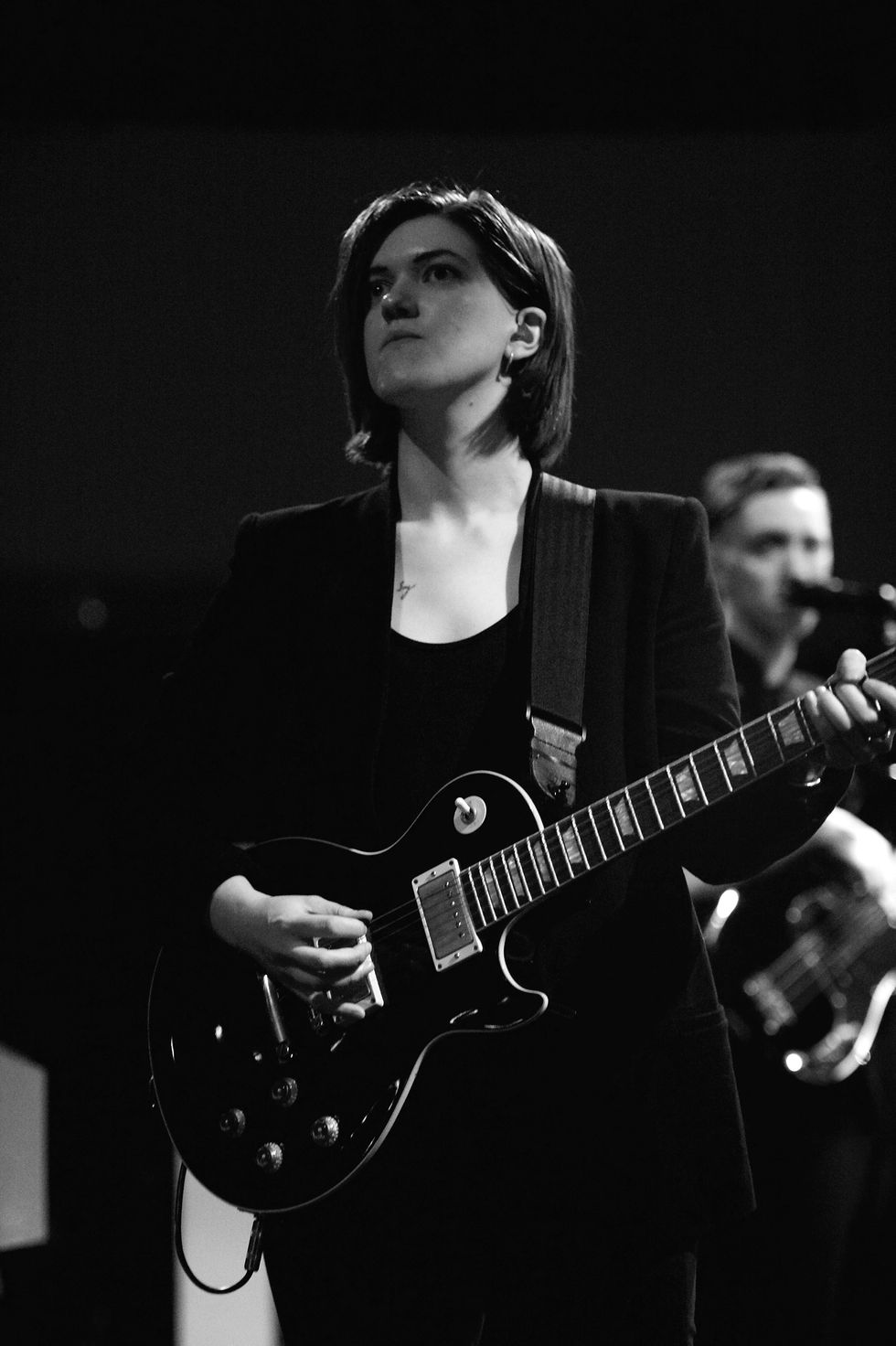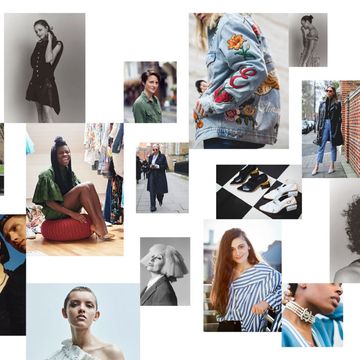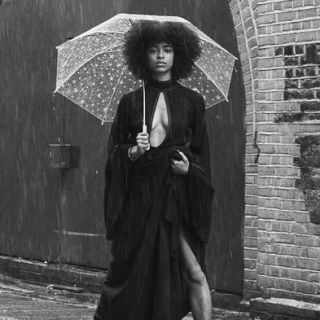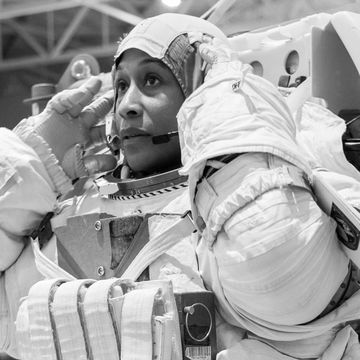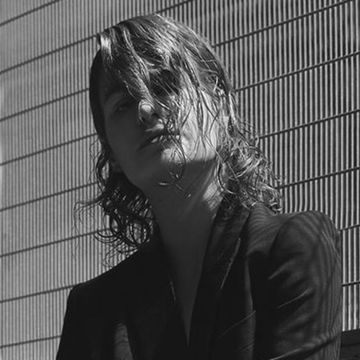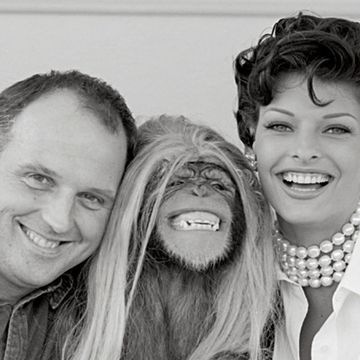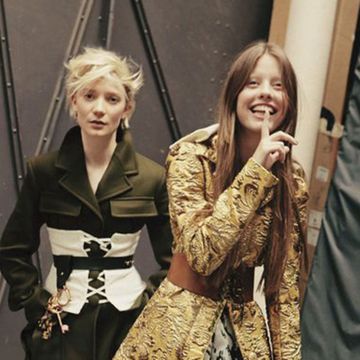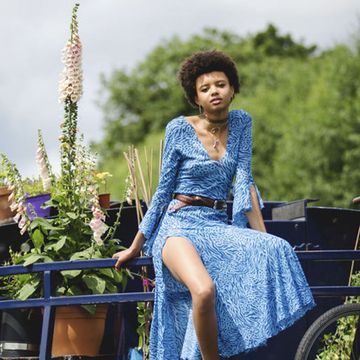When I meet Romy Madley Croft, it is dark outside: one of those winter evenings when the light starts to fail earlier than you expect so that, by 5pm, it feels like the dead of night. We are doing the interview in a dimly lit room at the headquarters of her band's record label in west London. When I take out my notepad, I can barely see what I'm writing.
Romy, the 27-year-old frontwoman of The xx, is dressed appropriately: black jeans, black shirt, black boots. Her black hair is precisely parted and falls just below her chin. It's her signature style.
When she spent time in Los Angeles in 2016, a city where the sun shines 300 days a year, she still wasn't tempted to ditch the monochrome. 'Yes.' She grins. 'My wardrobe is completely black.'
But despite appearances to the contrary, Romy insists she has lightened up. The xx's third studio album, I See You, is released in January and marks a turning point for the band. It's 'warmer' than you might think. Romy and her two bandmates – bass player and vocalist Oliver Sim and producer/ beat-creator Jamie Smith – are famed for their melodic brand of stripped-back melancholy and haunting vocals. Oliver and Romy have been friends since they met at nursery school at the age of three, and know each other so well that their voices curl around each other like wisps of smoke. But it's not a romantic or eroticised sound: both Oliver and Romy are gay. 'We're really singing past each other,' Romy once said.
The result is a beautiful combination of intimacy and separation; closeness shadowed by distance. The xx's first album, released in 2009 when Romy was still in her teens, went platinum and won a Mercury Music Prize. Their follow-up, Coexist, debuted at number one in the UK album charts. Yet they always seemed a little uncomfortable with the attention. Romy never liked to reveal too much.
'When I was growing up, I loved musicians who I didn't know everything about.' She speaks softly, looking away more often than not. This awkwardness is endearing, rather than rude. There is a sweetness to her that you don't often find in celebrities; a sense that she still sees the world as an intriguing place and remains curious about it, rather than cynical. 'In the early days,' she says, 'we weren't comfortable sharing our personal lives, so we chose not to.'
Recently, she has started opening up. In past interviews, Romy tended to steer clear of questions about her sexuality. Today she talks easily about her girlfriend, visual artist Hannah Marshall. She's even started using social media – Instagram rather than Twitter, 'because I prefer pictures to talking. I set it up because I wanted to share things with my friends and let people in, and I've actually enjoyed it. It's a big step for me.'
I See You also marks a tidal shift. The music is just as distinctive, but somehow more upbeat and… well, happy. 'I am a little bit more comfortable in my skin,' agrees Romy, 'and I think I am able to let go of insecurities and any self-consciousness that I felt a lot more when I was younger.'
She did much of her growing up in the public eye. In those awkward late teenage years and into her early twenties, she was almost always on tour, playing sell-out gigs, acquiring celebrity fans such as Beyoncé ('very down to earth and genuine') and entertaining audiences of thousands at Glastonbury and Coachella. At a time when many of us struggle to find our own identities, Romy was thrust into the limelight. She was never a natural extrovert. 'I look back and think, "How did we do that?'" she says. 'Now I can honestly say I love being on stage and really enjoy it, but I still have nerves.'
Growing up in Putney, south-west London, the only child of a primaryschool teacher mother and a father who worked in a library, Romy says she was 'always in my own head.' She recently read Susan Cain's influential book, Quiet: The Power Of Introverts In A World That Can't Stop Talking, and it resonated with her. Being quiet 'has made me more observant. I like taking things in and being observant in any situation.'
But there is, perhaps, another reason for this introspection. When she was 11, Romy's mother died of a brain haemorrhage and she was sent to live with her aunt and uncle, and their daughter. 'I think, in that moment, I went from being a young 11 year old to an older 11 year old. I always felt older than I was. I started going on nights out in London when I was 15 and we started the band at this time, before beginning to gig at 17. I always enjoyed the company of older people, so I always had older friends.'
Nine years later, shortly after the release of the band's first album, Romy's father also passed away, reportedly of complications arising from alcoholism. That same year, a cousin to whom she was close died of a brain tumour.
Romy has, understandably, never wanted to talk publicly about this succession of traumatic events. Today, she tells me those tragedies 'have shaped me. It's been horrible, but it's made me who I am and made me stronger. I think I take that experience with me.'
A song on the new album, Brave For You, explicitly refers to this: Romy sings, Though you're not here/I can feel you there/ I take you along/And when I'm scared /I imagine you're there/Telling me to be brave.
Although she doesn't like to explain her lyrics, she says Brave For You 'is about all the people I have lost. I don't want to ruin what the song is to anyone else, but that's what it was for me… it is a love song, but it's a slightly different angle, on a personal level.'
It was only relatively recently that Romy felt able to confront her grief. The xx's last album was released four years ago and the band stopped touring in 2014, giving her some much-needed time to reflect.
'I definitely pushed a lot of things down,' she says. 'Having this time off has given me time to get to know myself more off stage. It's been tough, because a lot of things came up for me, but I am happy I was in a good place in order to deal with it. If you are in a bad place and trying to deal with traumatic things, it could send you over the edge.'
Instead, she has been able to 'reconnect with memories' of her parents. She remembers having dinner with her father, both listening intently to music: 'That all seeped in. It was The Velvet Underground, and then there was a Madonna phase… I've enjoyed finding out more about my parents.' Is it harder for Romy to remember her mother because she was that much younger when she died?
'Yes, I find that challenging. It helps talking with my family about her, but it's horrible because it happened at an age where you have memories but you can't remember a huge amount. Having this time and facing it has really helped to jog my memory. I have enjoyed looking at pictures and finding out more information. I felt ready to do it.'
All of this is delivered without a trace of self-pity. The last few years have been about self-confidence as much as anything and, to that end, she has also started producing: 'I can be more self-sufficient and get my views across… it's empowering. I still find it hard to say what I want in a situation without upsetting anyone, but I am trying to not be so apologetic about asking for what I need.'
I tell her I can't imagine her upsetting anyone. She smiles. 'Well, you get into your own head and think, "That person will think badly of me." But my girlfriend always says, "Everyone knows that you're nice and polite, just say what you need.'"
Is it tough to be a strong woman in the music industry? She nods.
'When I'm on tour, I do look around and wish there were more women on the touring crews and the line-ups. There was an article I read online and they took the Reading and Leeds [festival] line-ups and blocked out all the acts that were all male, and there were hardly any left. I felt very sad about that because [growing up] I was always drawn towards very strong and empowering women, such as Karen O from Yeah Yeah Yeahs, Alison Mosshart from The Kills and Brody Dalle from The Distillers – women who didn't seem to care outwardly. I hope that more young girls don't leave it to the guys. They can do it just as good as any guy.'
The interview draws to a close and we both get up to leave. There is a moment when neither of us knows whether to shake hands and, in the end, it's Romy who breaks the ice with a hug.
It's a reminder that, in spite of all her talent and fame, she's still awkward; still the quiet one who likes to hang back and observe.
But she's comfortable with that. Her power comes from finally having accepted herself and knowing that, in a world of noise, sometimes the greatest strength comes from not shouting.
